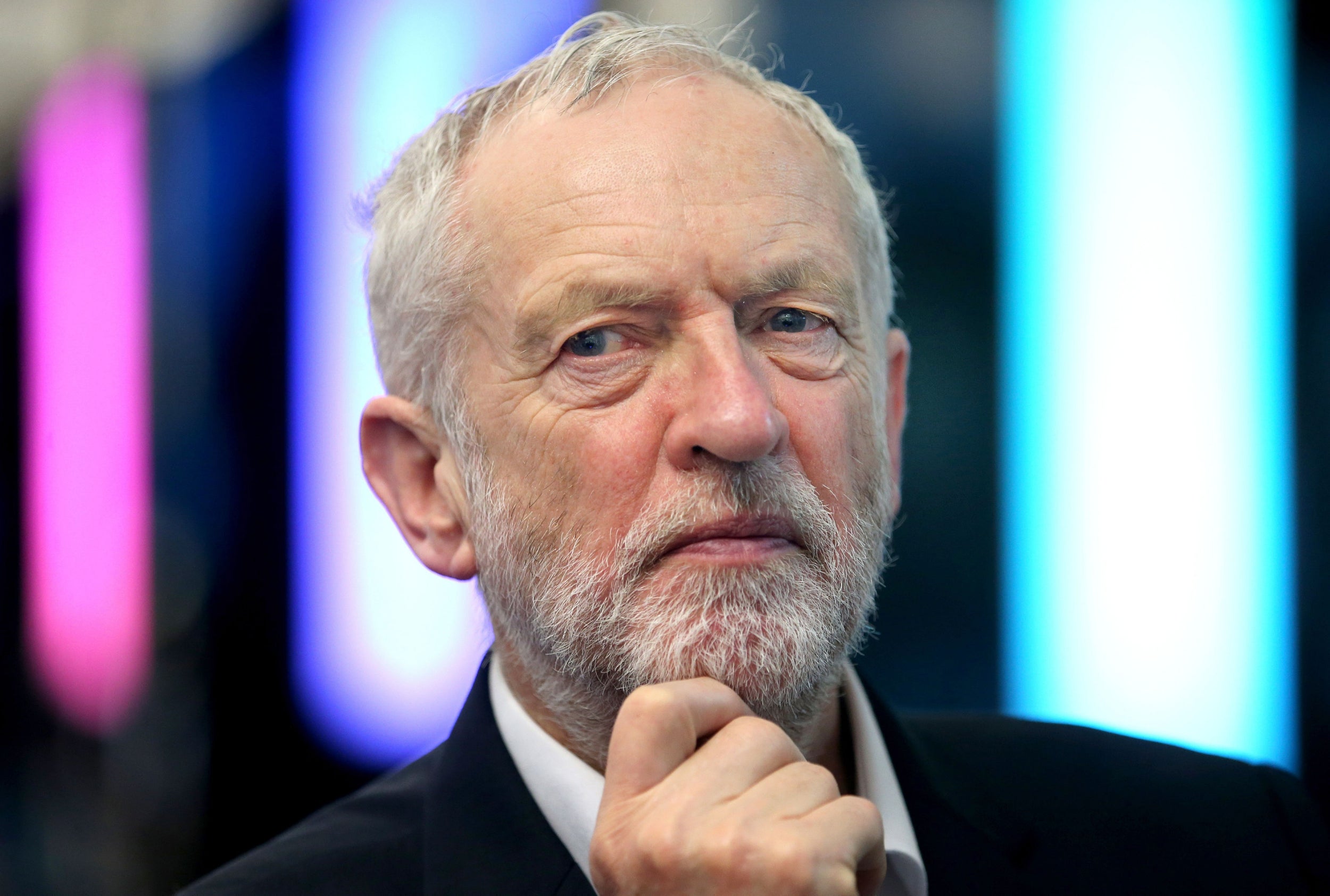The sorry saga of Labour's antisemitism row has gone on for far too long. Corbyn must show leadership
The IHRA definition is good enough for the government, more than 100 local authorities and 31 countries. It should have been good enough for the Labour Party

Your support helps us to tell the story
From reproductive rights to climate change to Big Tech, The Independent is on the ground when the story is developing. Whether it's investigating the financials of Elon Musk's pro-Trump PAC or producing our latest documentary, 'The A Word', which shines a light on the American women fighting for reproductive rights, we know how important it is to parse out the facts from the messaging.
At such a critical moment in US history, we need reporters on the ground. Your donation allows us to keep sending journalists to speak to both sides of the story.
The Independent is trusted by Americans across the entire political spectrum. And unlike many other quality news outlets, we choose not to lock Americans out of our reporting and analysis with paywalls. We believe quality journalism should be available to everyone, paid for by those who can afford it.
Your support makes all the difference.As a Brexit debate vital to the UK’s future reaches its crunch point, the Labour opposition is still devoting an inordinate amount of energy to a dispute over how to combat antisemitism in the party.
On Monday, Labour MPs will urge the party to go further than the code of conduct agreed last week by its National Executive Committee (NEC), which declined to adopt in full the International Holocaust Remembrance Alliance (IHRA) definition of antisemitism and its accompanying examples.
The Parliamentary Labour Party will debate including the full IHRA wording in its own rules; Labour peers may follow suit. For good measure, Labour faces the prospect of two legal challenges by Jewish groups under human rights laws.
Allies of Jeremy Corbyn insist the NEC code is tougher and clearer than that of the IHRA, which they argue is vague. However, the NEC version omits some IHRA examples of what would constitute antisemitism, such as comparing Israel’s actions to those of the Nazis.
Supporters say including this might infringe the rights of groups oppressed by Israel, including the Palestinians. But critics claim a Labour member who branded a Jew a Nazi might receive a warning rather than be expelled.
Also omitted from Labour’s code are: accusing Jewish people of being more loyal to Israel than their home country; claiming Israel’s existence as a state is a racist endeavour; and requiring higher standards of behaviour from Israel than other nations.
Corbyn allies maintain that these are discussed in Labour’s code, but their direct omission has fuelled suspicions the code would make it easier for Labour to clear members accused of antisemitism.
However passionately Labour members support the Palestinian cause, and however legitimate some of their criticisms of Israel may be, that does not justify crossing a line into antisemitism, such as the horrific abuse directed at Jewish MPs on social media.
The NEC missed an opportunity to draw a line under a controversy that has dogged Labour for three years. The IHRA definition is good enough for the government, the devolved administrations, the Crown Prosecution Service, more than 100 local authorities and 31 countries, including Hungary. It should have been good enough for the Labour Party.
Although some Corbyn supporters claim the row is being used by internal opponents as a stick with which to beat him, this a feeble excuse; the concern goes much wider than that. Ephraim Mirvis, the chief rabbi, has accused Labour of sending “an unprecedented message of contempt to the Jewish community”.
This issue could even be the final straw for some Labour MPs, as they consider leaving the party to sit as an independent group. They are appalled that the veteran Labour MP Dame Margaret Hodge, a secular Jew, faces disciplinary action for confronting Corbyn in parliament over the NEC’s decision last week, warning him he was perceived by many as an antisemite.
On Sunday John McDonnell, the shadow chancellor, wisely tried to lower the temperature, saying the row with Dame Margaret should be resolved quickly and possibly informally.
Mr Corbyn’s critics accuse him of being reluctant to take action against longstanding friends. They point to a marathon two-year disciplinary process against Ken Livingstone for suggesting that Hitler supported Zionism in the early 1930s.
We do not think that Mr Corbyn is an antisemite; his history of fighting racism suggests otherwise. But this sorry saga has gone on for far too long, and Mr Corbyn must now display firm leadership to bring it to a close.
The NEC has acknowledged “serious concerns” about its code and offered to discuss its development with Jewish groups. They should engage in such talks, and the party’s code should be brought fully into line with that of the IHRA.
The Labour leadership would be wrong to view this issue as merely one which impacts upon the Jewish vote. The party’s woeful mishandling of it sends a damaging signal to many others whose support Labour will need if it is to win power.
Join our commenting forum
Join thought-provoking conversations, follow other Independent readers and see their replies
Comments